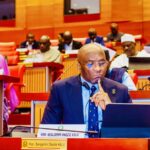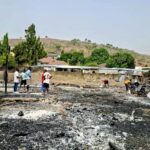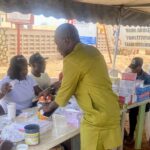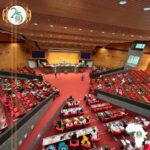By Maureen Okon
Some experts in the agricultural sector have suggested ways to tackle postharvest losses to enhance food security in the country.
The experts spoke to the News Agency of Nigeria (NAN) on the sidelines of the 1st Postharvest Connect Conference and Exhibition, which ended in Abuja on Saturday.
The conference was organised by the Nigerian Stored Products Research Institute with the support of International Institute for Tropical Agriculture (IITA) and other donor agencies with the European Union.
It had the theme ‘Scaling Appropriate Postharvest Solution for Sustainable food and Nutrition Security’.
Mrs Omolara Adewola of the Department of Agricultural Extension and Rural Development, University of Ibadan, said that working together was key to addressing postharvest losses which starts from land preparation to the consumers.
“A lot has been brought up at the conference and we noticed that everybody is working in isolation.
“There’s need to come together so that we will not repeat the same thing in different ways and experience losses.
“We need to come together, meaning the whole value chain of agricultural products must be harmonised to cut down on the postharvest losses we experience, where we have the farmers, processors, marketers and the consumers as well.
“This will help in making the right production and reduce our postharvest losses starting from the beginning of land preparation to the final stage which are the consumers,’’ she said.
Mr Ofon Udofia, Executive Secretary and CEO of the Institute of Export Operations and Management said that for the postharvest losses to be addressed, bankers ought to be involved in the entire agricultural food chain.
“This is a laudable initiative that does not only connect postharvest losses but also connection for further businesses.
“What we found out was that the bankers were telling us that the trait in sponsoring agri-business was the challenge.
“I tend to defer from that, if there is no experiment you will not have result, so the banks should not feel unconcerned.
“If you go to other countries like Tanzania and Kenya, the bankers are equally involved by going to the farm to assist farmers, because export business is a business that has to do with a lot of knowledge.
“ The farmers might not be knowledgeable enough but the bankers should be like their financial doctor that tells them what they needed to do to save the entire process,’’ he said.
Dr Robert Chakanda, Executive Director, Sierra Leone Seed Certification Agency, said to address postharvest losses the quality of seeds must be given attention.
“It is important that we put our ideas together on how we conduct our seeds issue, because seed is the foundation of every agricultural activity.
“When we talk about postharvest losses, the first thing that comes to people’s minds is the crop for the table consumption part, we easily forget about the genesis of agriculture, which is seed.
“Planting rice in Sierra Leone or cassava in Nigeria, you have to start thinking about the planting material which you grow, harvest and prepare for the farmers to sow.
“That is where the seed content comes and you have to be very careful because seeds are a highly scientific material for agriculture to happen,’’ he said.
Prof. Johnson Onyibe of Ahmadu Bello University, said that the National Agriculture and Innovation Transformation Plan has provided a lot of room for those who want to go into the agricultural sector.
”It is now that government has opened the doors and say commercialise this sector, it is no longer the era of hoes and cutlass, we should be talking about mechanised and digital system and so on.
“Also, this mechanisation and digital system should be extended to postharvest,” Onyibe said.
According to him, there has been some improvements in reducing postharvest losses in the country.
“In the current document it is saying that we have about 40 to 50 per cent of losses through postharvest losses.
“In the past, our former document says it is 60 per cent, which means there have been some improvement.
“Nigerians may not have taken note, it may look like things are getting bad, but it is not that bad looking at the improvement from 60 to 50 per cent,’’ he said. (NAN)(www.nannews,ng)
Edited by Maharazu Ahmed













This is so wonderful grateful for being part of the process in securing food and nutrition security in Liberia and other parts of Africa, the world at large